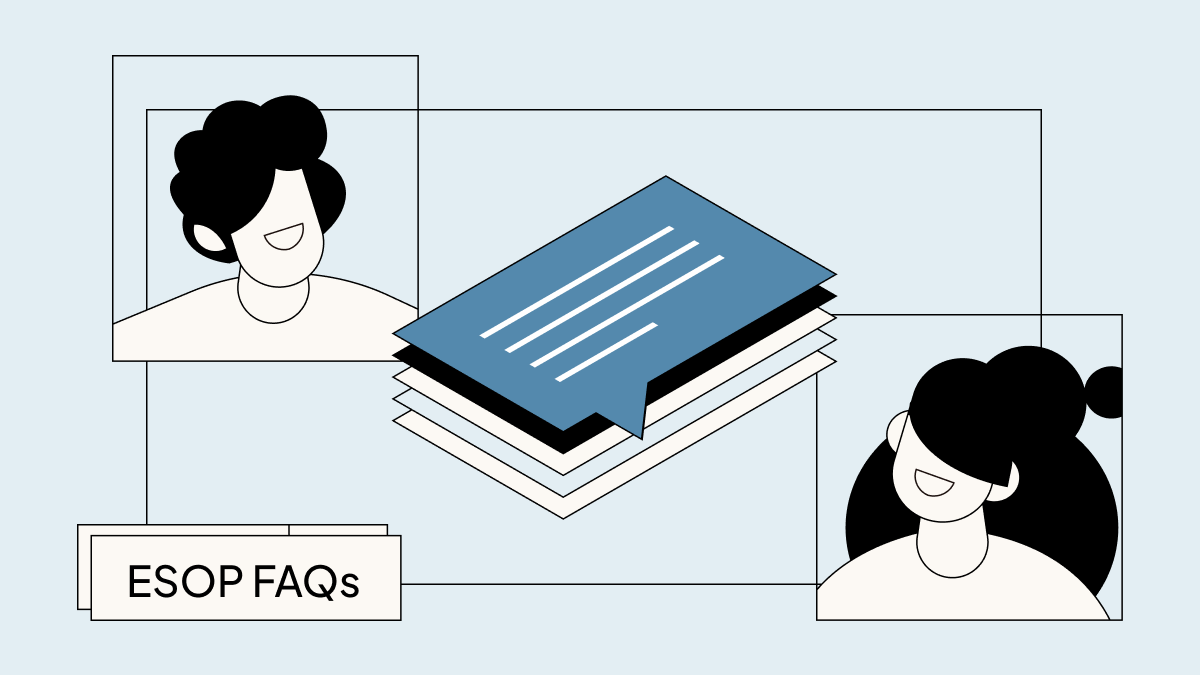If you’re wondering “what’s an ESOP?”, you’ve come to the right place. Even if you know what an ESOP is, you might be in a position of explaining the finer details to colleagues who work with equity or even to your employees. We’ve called upon our network of equity experts to answer the most common questions on employee share ownership plans (ESOPs).
What is an ESOP?
ESOP stands for employee share ownership plan. Through ESOPs, companies can issue share options to their employees, granting them the right to buy shares for a predetermined strike price at a time in the future. It’s a future financial benefit as well as an incentive that aligns employees with the business’ vision and performance. ESOPs are usually qualified which means there are tax benefits to both the employer and the employee. EMI schemes are the most popular employee share scheme in the UK but, as experienced share scheme lawyers like Korn Ferry Partner Ian Shaw will tell you, there are alternatives including CSOPs, JSOPs, SIPs and SAYE schemes.
How do ESOP grants work?
Share options are granted via a contract which lays out the terms and conditions of that agreement. The recipient reviews the contract, raises and resolves any questions they might have with their employer, and then signs it. This step is important, as grantholders should understand all the terms before agreeing to anything. One of the most common conditions of employee options is that they vest according to a schedule set out in a shareholder agreement. A typical schedule lasts four years with an initial one-year cliff, during which time no shares vest. The conditional cliff and four-year period reward loyalty and reflect the fact that employees generally contribute more value to a business the longer they’re there.
What is the value of shares in the ESOP?
The value of the share options is typically determined by the startup’s latest valuation, which in the UK needs to be approved by HMRC prior to issuance. The value of the share options increases relative to the value of the company. The higher the value of the company when it reaches a liquidity event (or invites employees to take part in a secondary transaction), the more the share options will be worth. Employees help to drive company performance so it’s worth making this link apparent when explaining ESOPs. When employees get results, the company performs well, investors want a slice of the pie and the value of the company increases.
What happens when an employee leaves?
What happens when employees leave depends on whether they’re a ‘good leaver’ or a ‘bad leaver’ – at least when it comes to employee equity. Leaver clauses are set out in shareholder agreements. Typically, ‘bad leavers’ exit the company without the chance to retain or convert their share options. Good leavers, on the other hand, will retain their vested options and any unvested options can be purchased for a nominal fee. The next steps vary between companies. Some apply a window to exercise the share options while others will grant employees a 10-year time scale until the options expire. There’s always a risk to exercising options as a leaver if you don’t know when the next opportunity to sell your shares and cash out will be. It’s worth seeking professional advice on such a decision.
When can an employee expect a return on their ESOP?
In order to incentivise employees with the reality of share options, it’s helpful to explain the various scenarios that could impact their value:
-
The business is highly successful and the value of the equity is very high
-
The business is moderately successful and the value of the equity is reasonable
-
The business doesn’t go to plan and the value of the equity is nothing
ESOP payouts are based on a future event like an IPO or secondary transaction. However, in order for an employee to see a return on company ownership, there are still hurdles to clear such as vesting and exercising the options. Seek professional financial advice if you’re not 100% sure about the terms and conditions of your ESOP.




